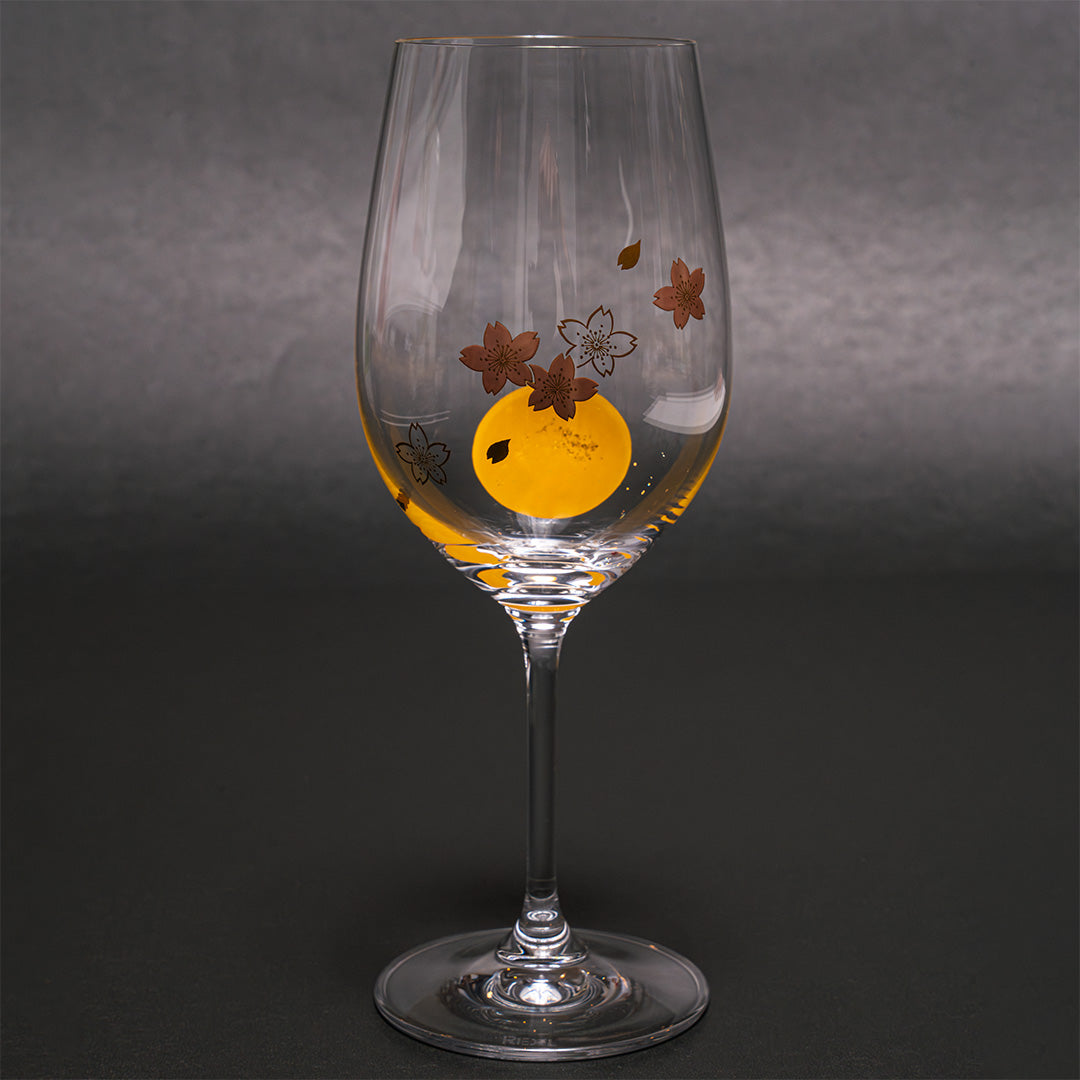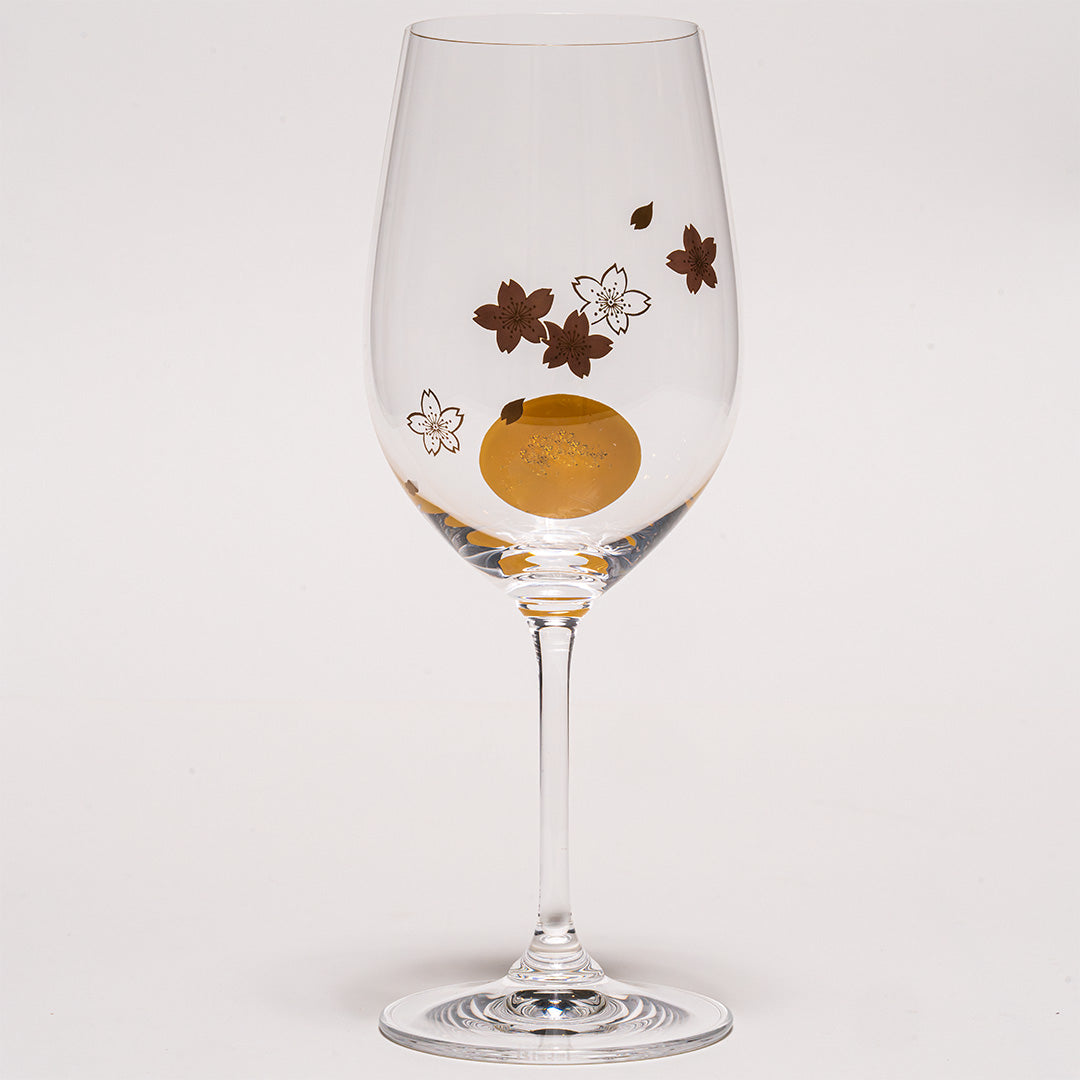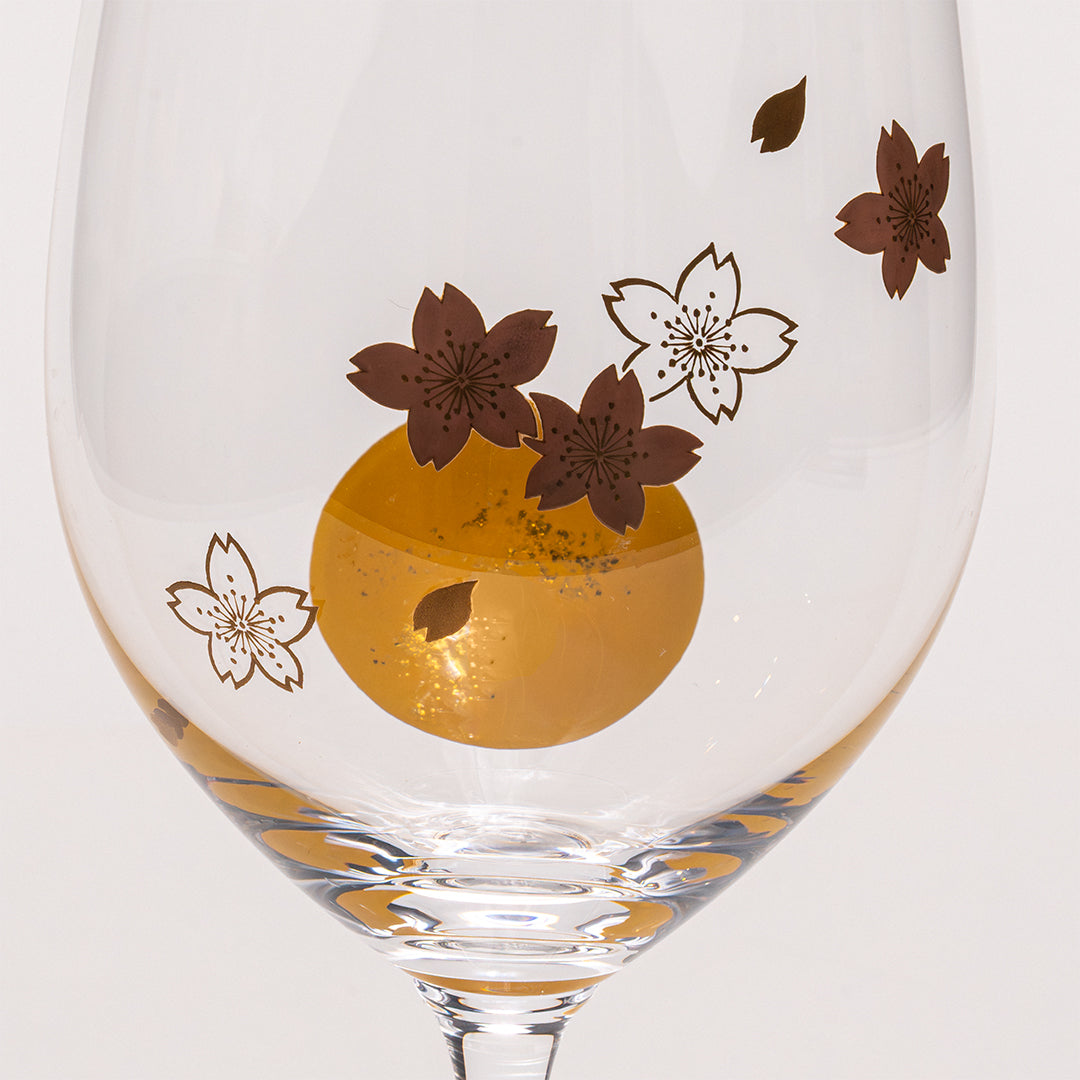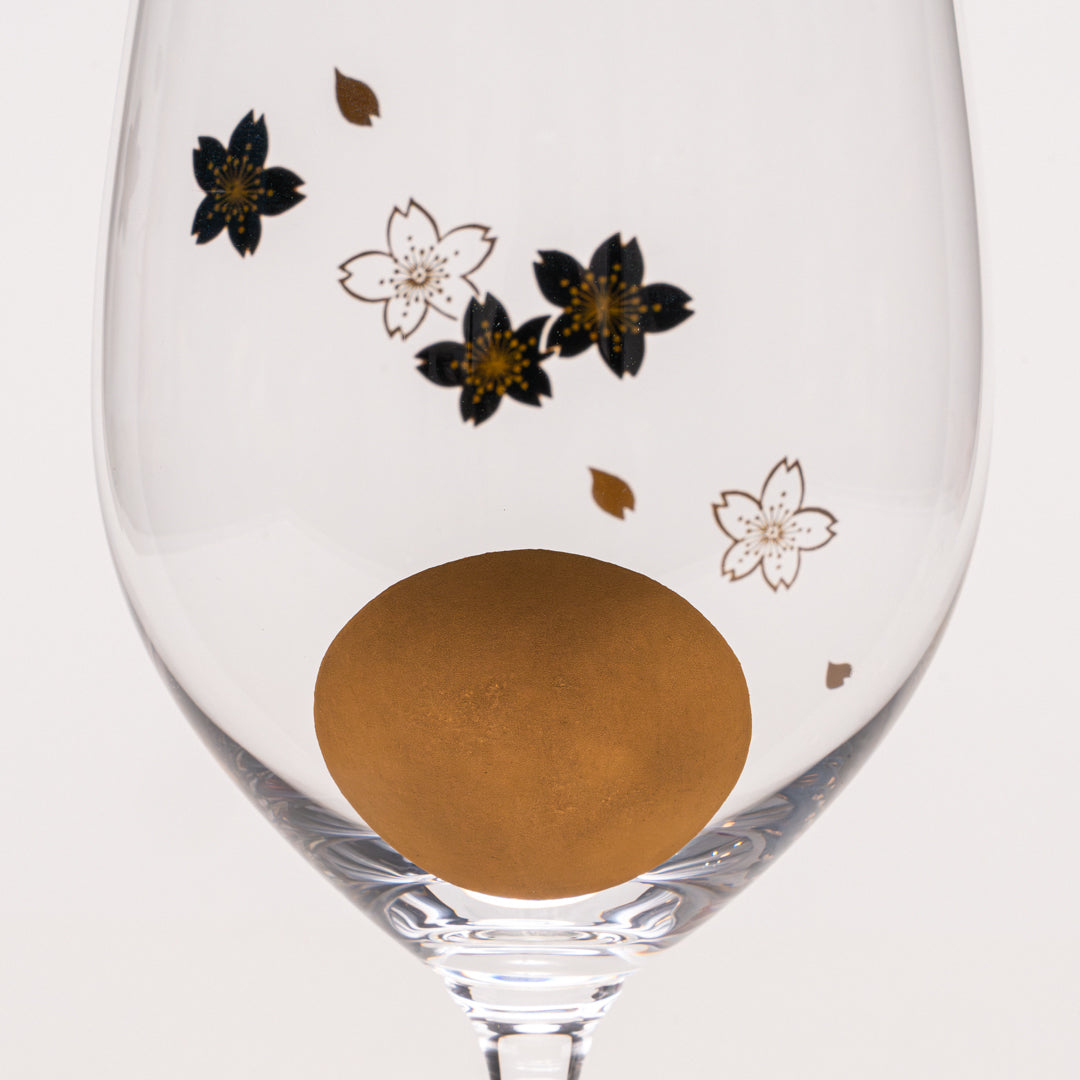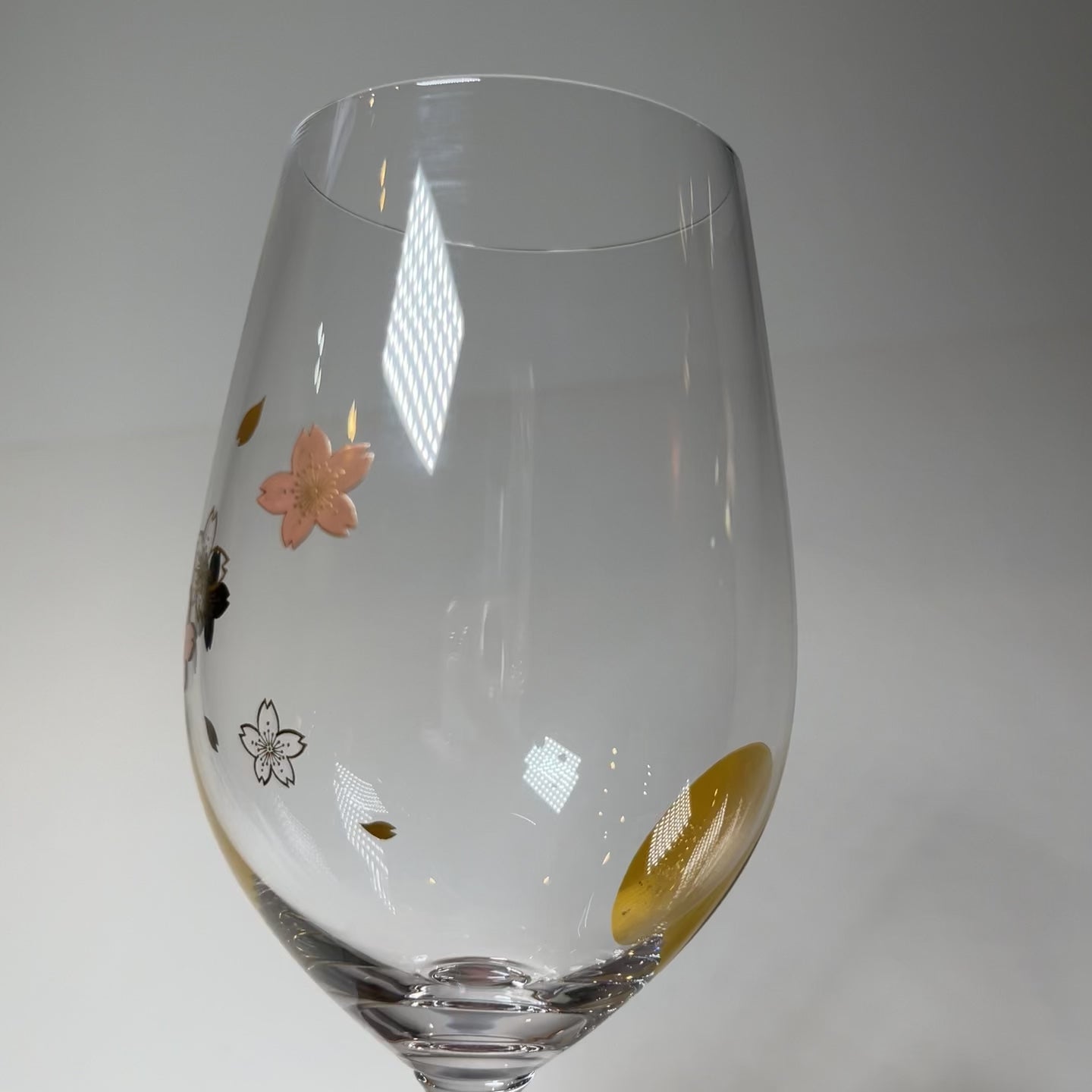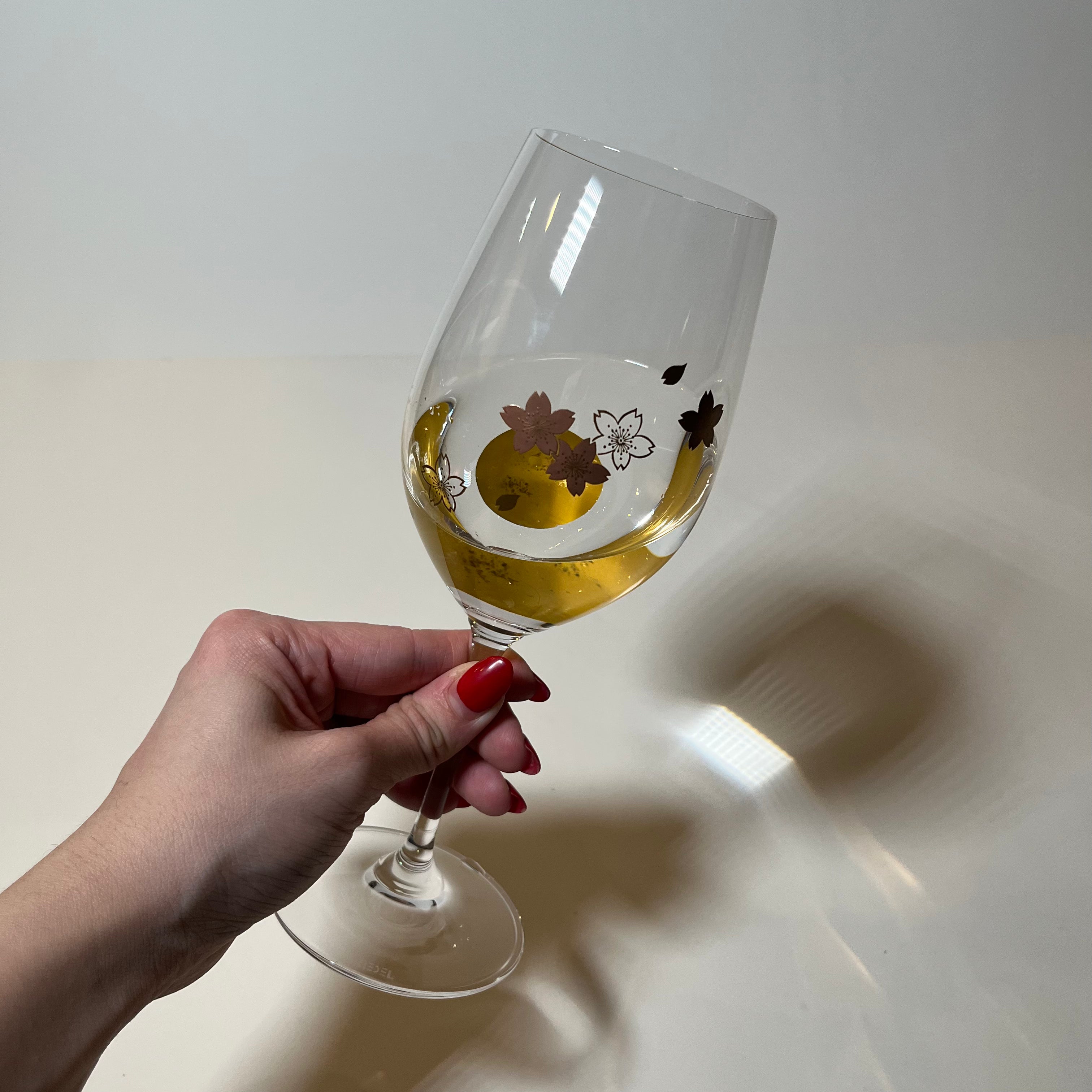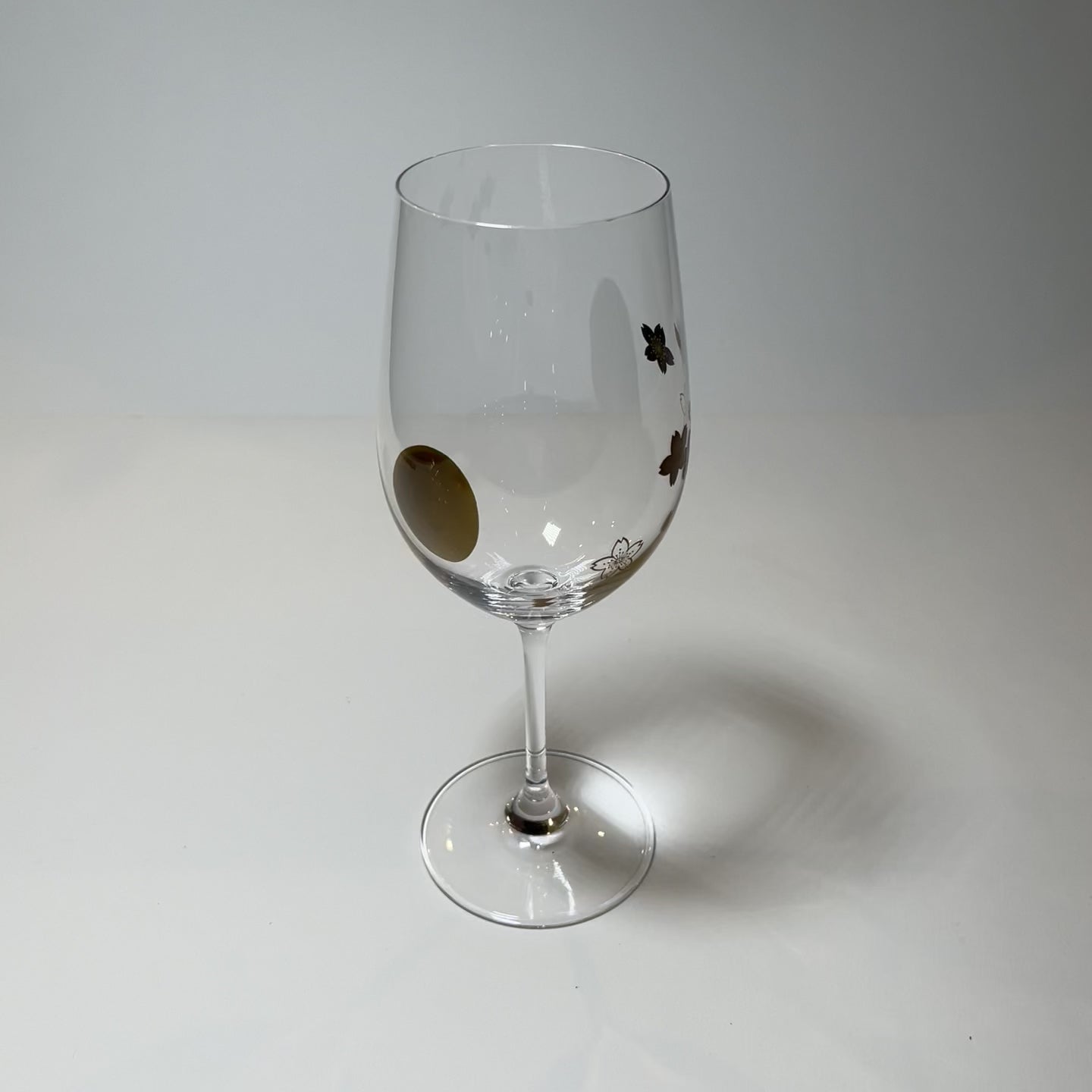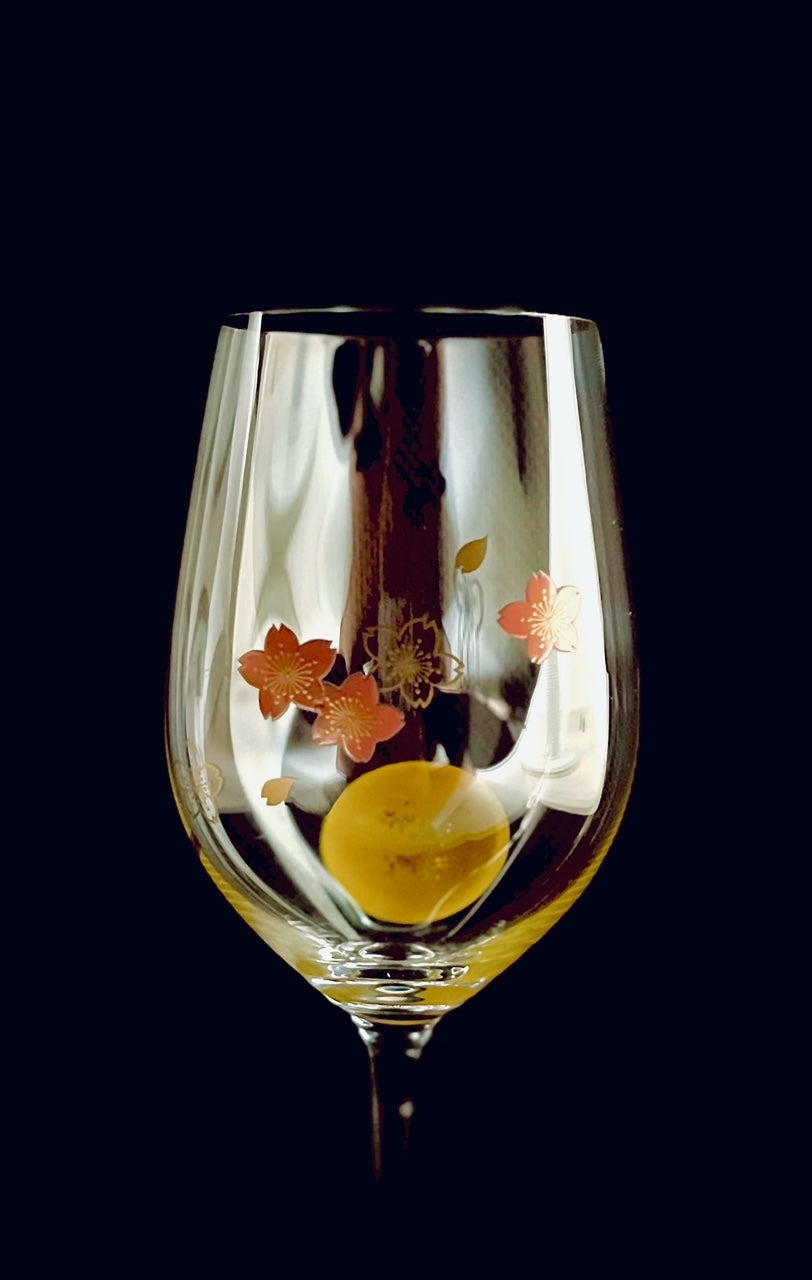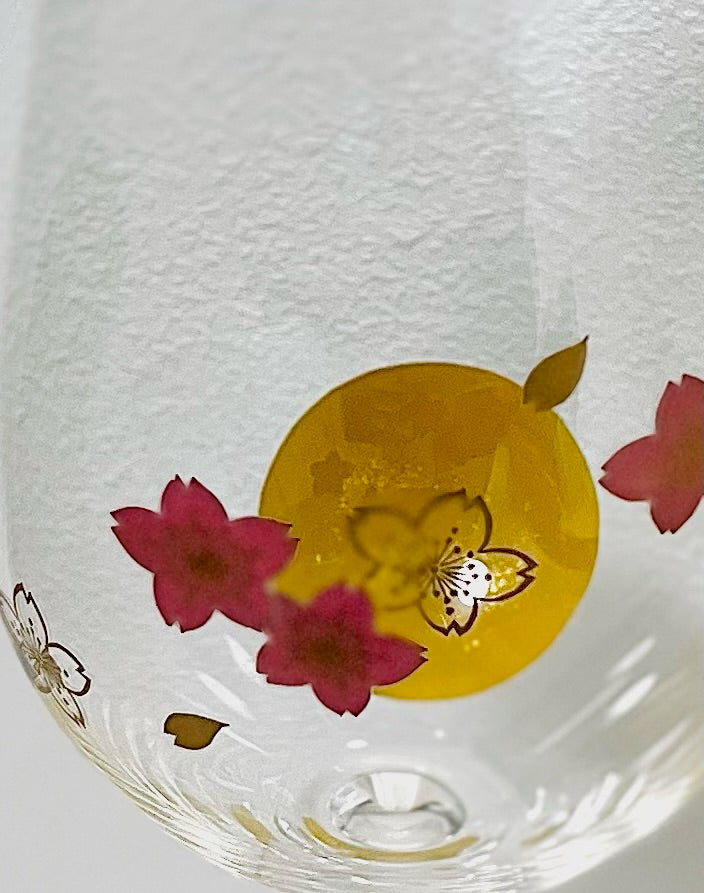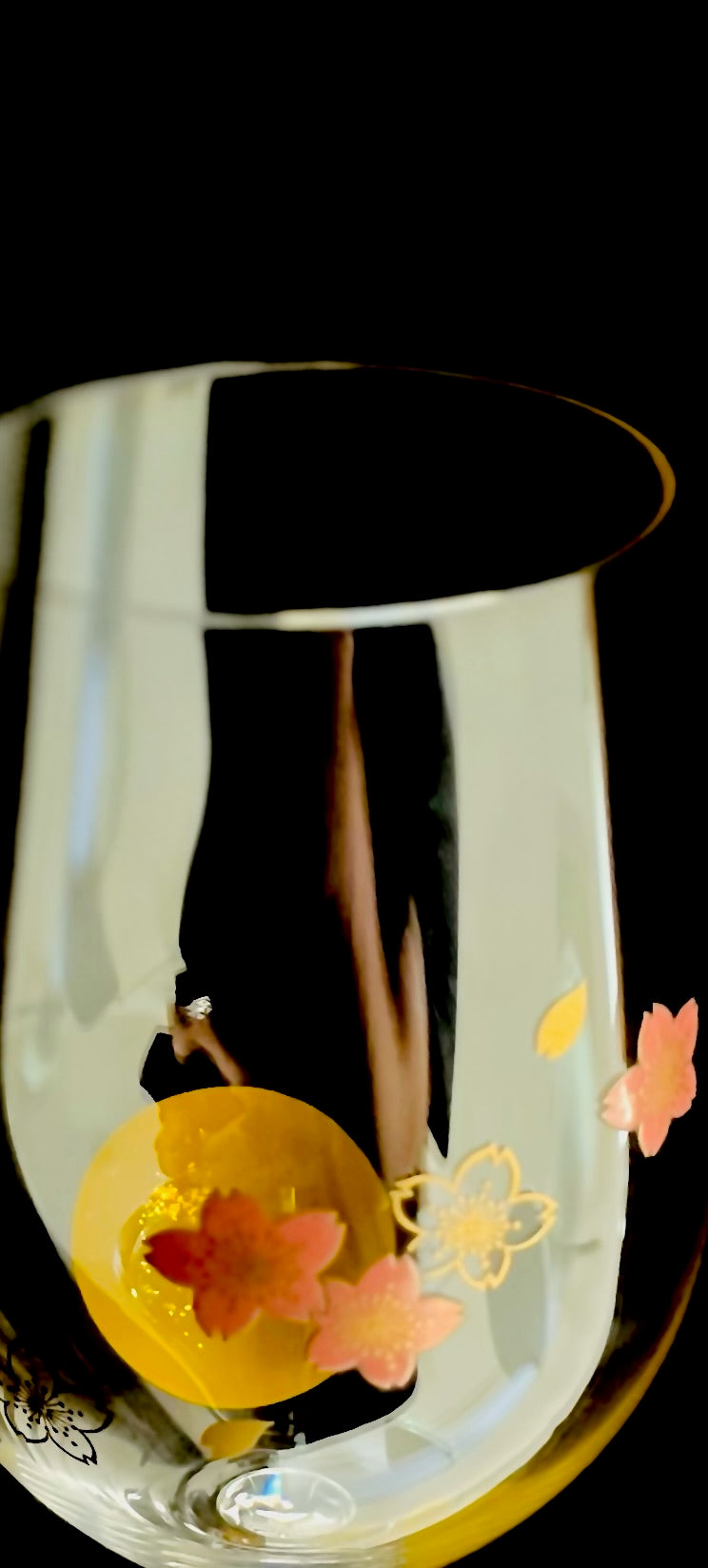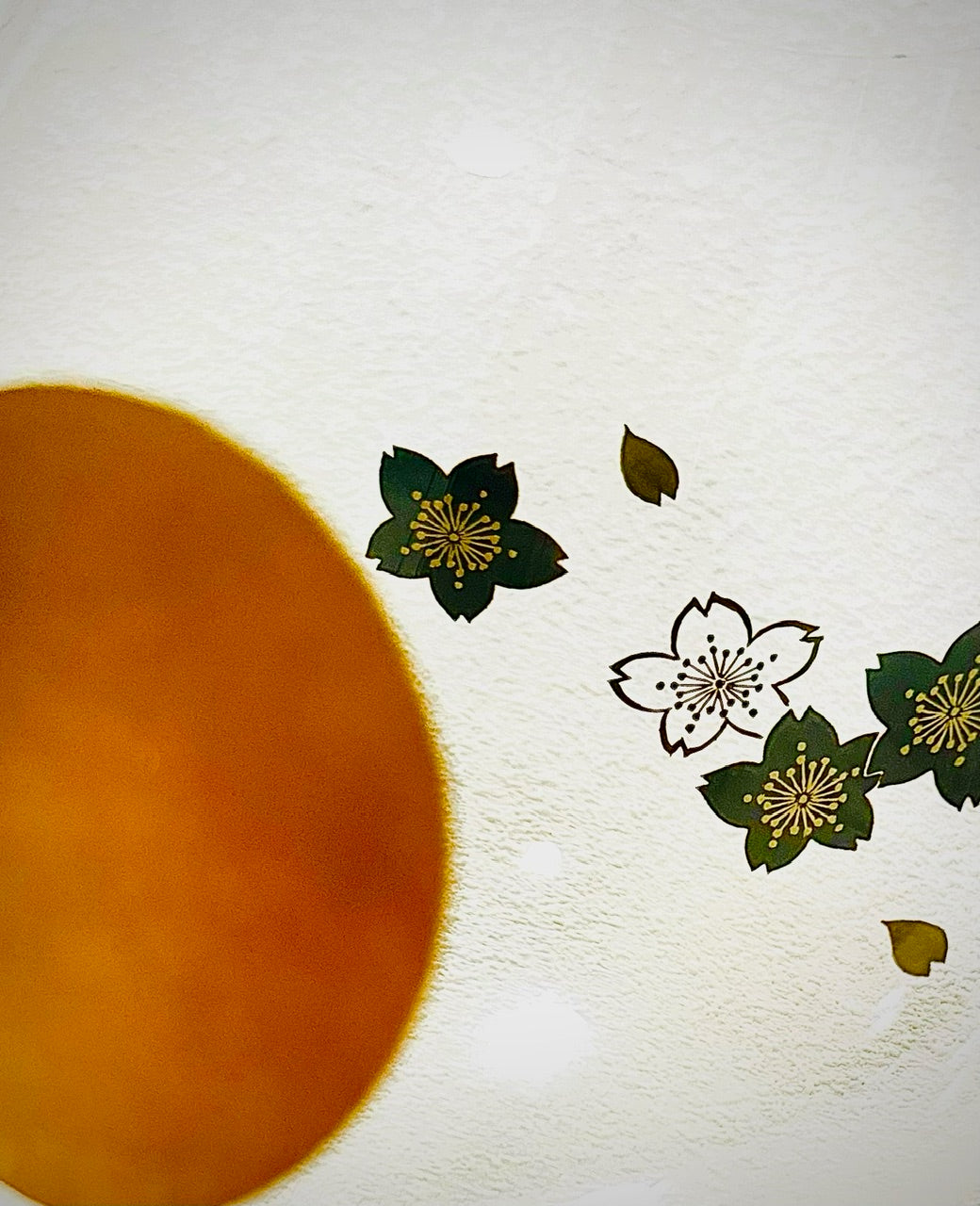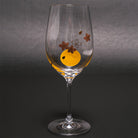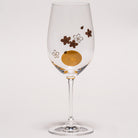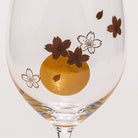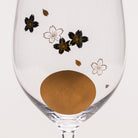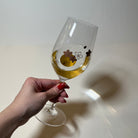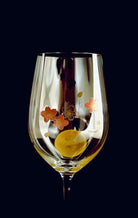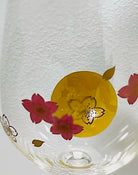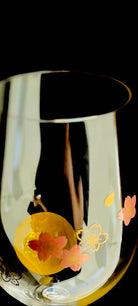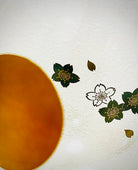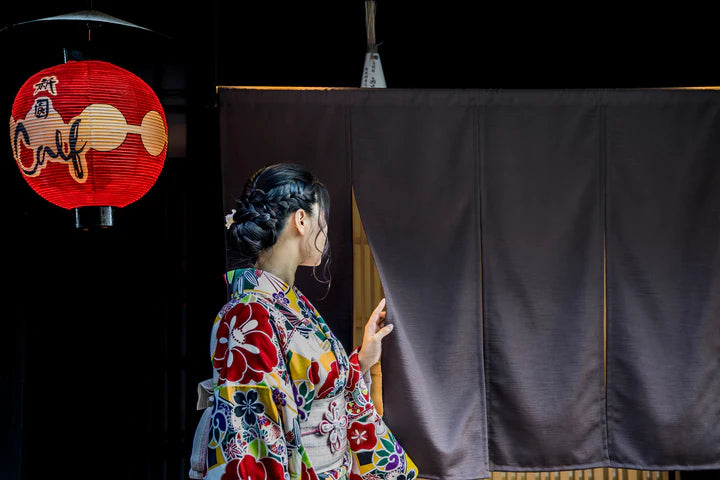(Wine or Sake Glass) "蒔絵 Maki-e" Painted Glass "Night Sakura"
Order placed: November 22, 2025
Dispatch Date: November 27, 2025
Delivery Date: December 04, 2025
Transparent Allure: Japan's Heartfelt Beauty
Enjoy the night sakura lacquerware. The atmosphere changes depending on your viewing angle, with sakura blossoms silhouetting against the moon and the moon casting shadows behind the sakura. This experience encapsulates the essence of Japan's beauty and artistry.
A lacquerware glass adorned with night sakura, or cherry blossoms, represents a magnificent fusion of Japan's traditional craftsmanship and the beauty of nature. This glass is not only a stunning work of art but also an introduction to Japanese culture and aesthetics for foreign visitors. The night sakura symbolizes the enduring beauty of cherry blossoms even in the nighttime, highlighting the ever-changing charm of Japan's four seasons. This lacquerware glass is ideal for gifting or for special occasions, providing a unique opportunity to immerse oneself in Japanese art and culture.

Riedel's Daiginjo Sake Glasses: A Canvas for Japan's Night Sakura
The glass is designed by the esteemed Austrian glassmaker, Riedel, specifically for savoring Japan's premium Daiginjo sake. These glasses are a testament to Riedel's reputation in the wine and spirits industry for creating glassware that enhances the drinking experience.
Each Daiginjo glass by Riedel is crafted to accentuate the delicate and complex aromas of Daiginjo sake. The unique design directs the sake's intricate fragrances directly to the palate, enriching the tasting experience.
Characterized by their slender shape, which tapers towards the top, these glasses are engineered to concentrate the sake's aroma, intensifying its delivery to the nose. The thin glass construction ensures a gentle touch on the lips, allowing for a pure and unadulterated appreciation of the sake's flavor.
Riedel's Daiginjo Sake Glasses are not just accessories for enjoying high-quality Daiginjo sake; they are tools for deepening one's understanding and appreciation of the nuances of Japanese sake. Recommended by sake enthusiasts and experts alike, these glasses elevate the sake tasting experience to new heights.
Embrace the art of sake with Riedel's Daiginjo Sake Glasses – a perfect blend of function and elegance, designed for those who appreciate the finer things in life.
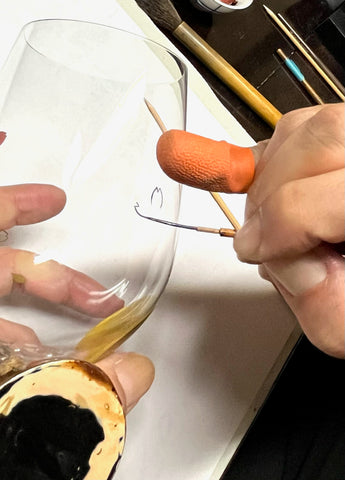

Materials:
- Crystal glass / Maki-e lacquer (metallic powder)
Size:
- Height: 8.07 inches, Maximum Capacity: 13.2 fl oz
- Diameter at the top (mouth): approximately 2.48 inches
- Maximum Diameter: approximately 3.11 inches.
How To Care:
- Avoid using an automatic dishwasher, as it can cause scratches and damage.
- Use a mild dishwashing detergent and gently wash the glassware using a sponge or soft cloth.
- Rinse thoroughly with hot water, as hot as you can tolerate.
- After rinsing, promptly and gently dry the glassware with a soft cloth, ensuring it is completely dry.
- Take extra caution when cleaning glasses with delicate stems, as they are more susceptible to breakage.
About "蒔絵 Maki-e"
Maki-e is a traditional Japanese lacquer art technique that involves sprinkling powdered gold or silver onto wet lacquerware. The process begins by painting intricate designs with lacquer. While the lacquer is still wet, artisans delicately sprinkle the precious metal powder. Once dried, additional layers of clear lacquer may be applied to seal and protect the design. The result is an exquisite piece that showcases the depth and radiance of the metallic patterns against a rich lacquer background. Maki-e items, ranging from small ornaments to large furniture pieces, are highly valued for their craftsmanship and beauty. Over the centuries, various techniques and styles have developed, reflecting regional and historical influences.
About "Kabajikichi Lacquerware":
In the Meiji era, the first-generation Kaba Jikichi established the lacquerware shop. The term "nushiya" refers to not only craftsmen who create lacquerware but also individuals or shops involved in its sale. At that time, KabaJikichi's lacquerware shop in Wajima was one of the most prosperous, boasting numerous storehouses. However, subsequent successors pursued careers as craftsmen rather than maintaining the identity of a lacquerware shop, causing it to disappear as such.
I am currently the fourth-generation, and while I apprenticed as a craftsman under my father, the previous generation, I strive to operate the lacquerware shop as it was in the days of the first generation, where craftsmen managed the entire process from production to sales. While preserving the name of the past that once faded, I explore new possibilities in lacquer every day.
Following the policy of "we'll lacquer anything that can be lacquered," I actively engage in collaborations with different industries and new materials. Despite the challenges, I lead a fulfilling life.
Kaba Jikichi Lacquerware Shop, 4th Generation - Kaba Motoki.

